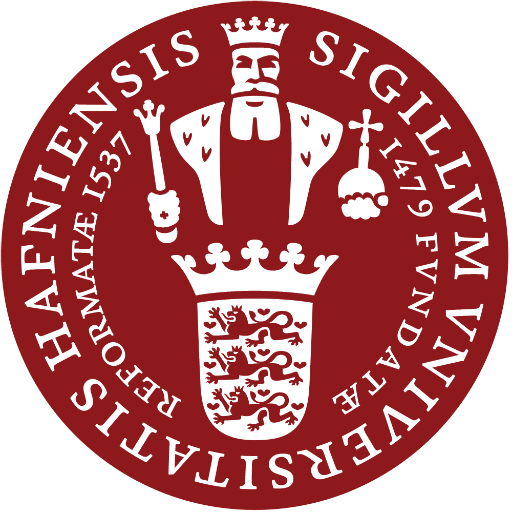PhD scholarship at The Danish National Research Foundation Centre for Privacy Studies (3 years)
Centre for Privacy Studies (PRIVACY), funded by the Danish National Research Foundation and based in Copenhagen, advertises 3-4 fully funded PhD positions within the fields of Architectural History, Church History, Legal History and History. PRIVACY is established with a grant of 50 mio DKK (ca. 6.7 mio Euro) from the Danish National Research Foundation and based at the University of Copenhagen.
PRIVACY was launched in the autumn of 2017 under the direction of Professor Mette Birkedal Bruun and runs for six years with the possibility of a four-year extension. It is hosted by the Department of Church History at the Faculty of Theology, University of Copenhagen, in association with the Faculty of Law, University of Copenhagen and the School of Architecture, Royal Danish Academy of Fine Arts, Schools of Architecture, Design and Conservations (KADK), Copenhagen.
The PRIVACY research team currently consists of six postdocs and three PhD-students as well as affiliated and visiting scholars.
The Centre
PRIVACY is dedicated to interdisciplinary and collaborative research into notions of privacy in Early Modern Europe. It focuses on eleven cases from Denmark, England, France, Germany and the Netherlands in the period 1500–1800. The collaborative programme is driven by an interdisciplinary vision of an integrated approach in which a team of scholars collaborate, challenge and inspire each other in a joint pursuit of the legislative, religious, social, cultural and architectural aspects of a shared set of cases. Shared responsibility across academic hierarchies is a token of PRIVACY’s vision for interactive research education.
The aim of PRIVACY is to develop 1) systematized historical knowledge of dynamics that shape, induce or curb privacy in society; 2) an interdisciplinary method equipped to grasp such dynamics; and 3) a strong and vibrant international research environment dedicated to high-profile historical research and equipped to incite a much broader investigation of privacy.
PRIVACY’s scholarly potency stems from its site-based interdisciplinary analysis. Across eleven cases the research team will trawl Early Modern material: letters, laws, political manuals, newspapers, sermons, visual representations, architectural drawings, buildings, diaries, contracts, community records etc. for notions of privacy, analysing the deployment of words with the root ‘priv-ʼ: in privato, privy, Privat-(person/andacht etc.), privauté etc. as well as boundaries drawn in relation to, e.g., confidentiality, security, family, body, self. The research programme is based on a joint interdisciplinary focus on, e.g., legislative thresholds between home and community; decrees regarding individuals’ bodies, e.g., during epidemics, or the idea of the household’s (oeconomia) impact on civic well-being (politia); ecclesiastical and political power over ‘heretical’ mindsets; and architectural demarcation of the household in the community and the individuals’ place in a household.
PhD students funded by PRIVACY are required to formulate a PhD project within one of the PRIVACY cases and to join an additional case-team. For this round of recruitment, we invite applications focusing on the German cases as well as La Rochelle, Chatsworth, Glasgow and Arc-et-Senans.
Research areas
PRIVACY launches a systematic, scholarly fusion of the areas of architecture, theology, law and history. The research team will bring together four sets of field-inherent skills and approaches to privacy:
Architecture: Urban plans, buildings and rooms frame privacy, creating secrecy and shelter; chapels and cabinets stage prayer, study and intimacy, and are amplified by interiors and furnishing; alcove beds and privies (toilets) wall off bodily needs; rural retreat offset urban life.
Qualifications required: Knowledge of design processes, architectural history and theories, patronage, patterns of use, materiality and tectonics.
Religious culture: Early Modern believers favour privacy (material and/or mental retreat) as a site for pious focus, and privacy is often presented as place particularly fit for prayer and insight. But privacy also evades control and prompts suspicion of heresy or sin, leading to efforts to regulate the private sphere by means of church discipline.
Qualifications required: Knowledge of religious, doctrines, practices and institutions across confessions, ability to work with different genres, media and forms of archival material.
Law: Early Modern law defines conditions for property, sexual conduct, marriage, inheritance and rulers’ claims to their subjects’ work, property and lives (conscription, monopoly of violence within penal law).
Qualifications required: Knowledge of legal procedure, laws, charters, their usage and changes.
History: Historians may focus on Early Modern notions of privacy within a scholarly span ranging from political theory to social practice. In Early Modern society, privacy is seen both as a threat and as a positive value. A new ideology of marriage and family favours intimacy and domesticity, but also enforces state and community control. In politics, privacy often equals secrecy: it is a latent threat to civic stability and vital for the ruler. In society more generally, a broad array of social and societal conditions delineate access to and notions of privacy.
Qualifications required: Knowledge of political/legal structures, education, and social and cultural dynamics.
Qualifications
Applicants must have an MA degree within the fields of Architecture, Church History, History, Legal History or related disciplines. The research language is English. The research team works on sources in French, German, Danish, Dutch, Latin, Portuguese and Classical Greek. Specialist knowledge of Early Modern culture is important. Just as central is, however, readiness to engage in interdisciplinary collaboration on a broad array of different sources and work towards an integrated methodology for interdisciplinary privacy studies.
The University of Copenhagen welcomes applications from suitably qualified candidates regardless of age, gender, race, religion or ethnic background.
For more information click "LINK TO ORIGINAL" below.
This opportunity has expired. It was originally published here:
https://employment.ku.dk/phd/?show=148617
